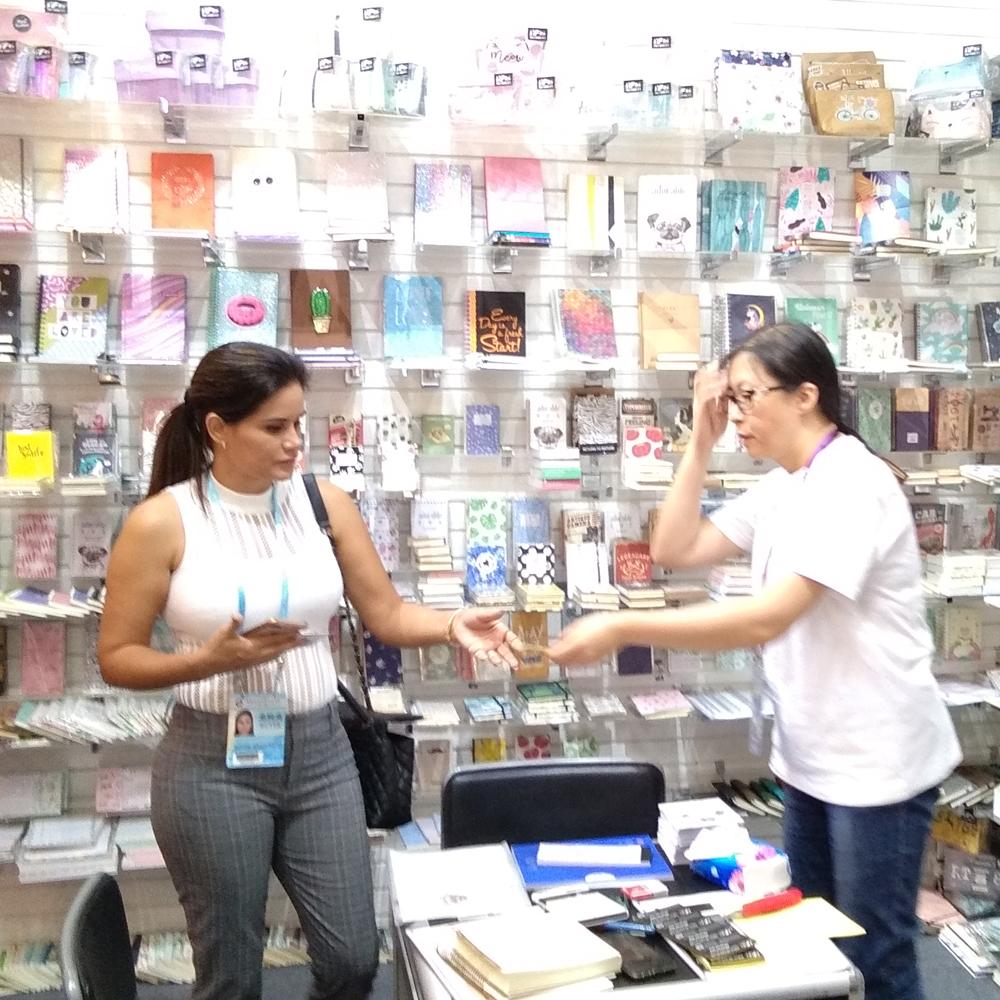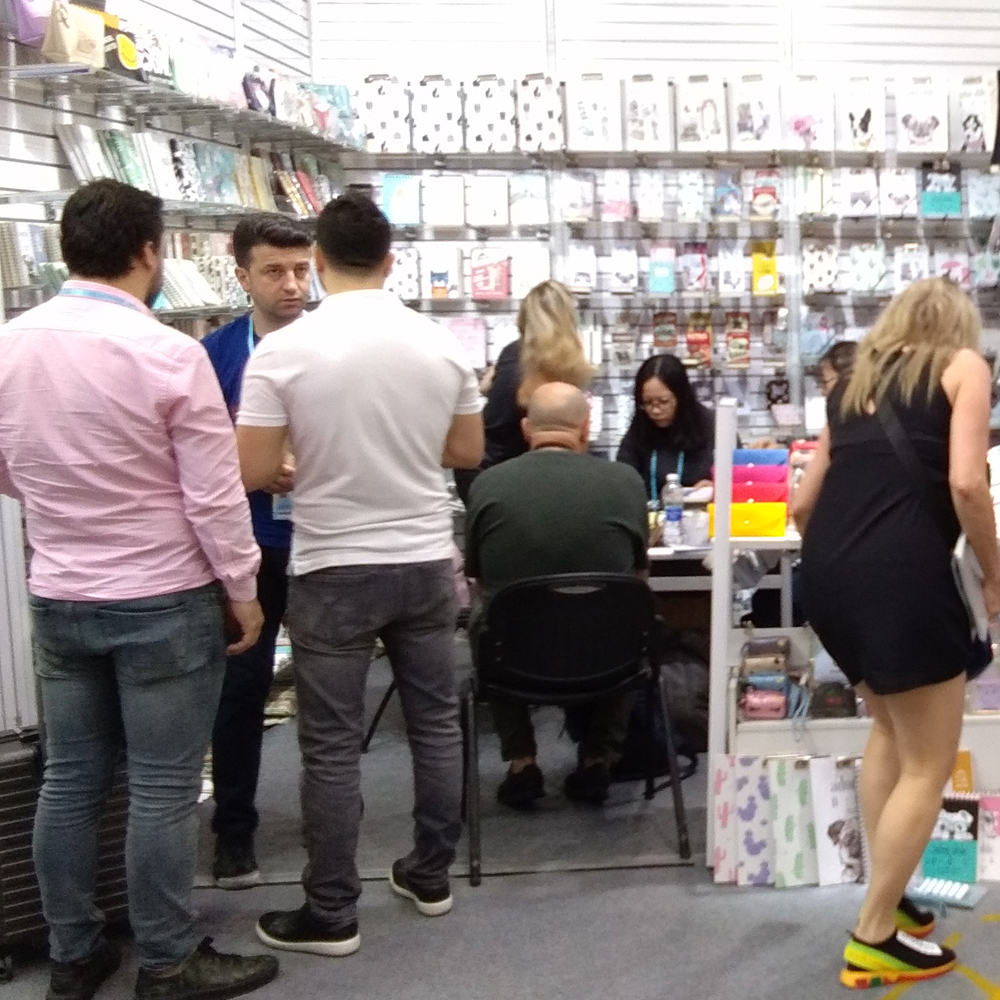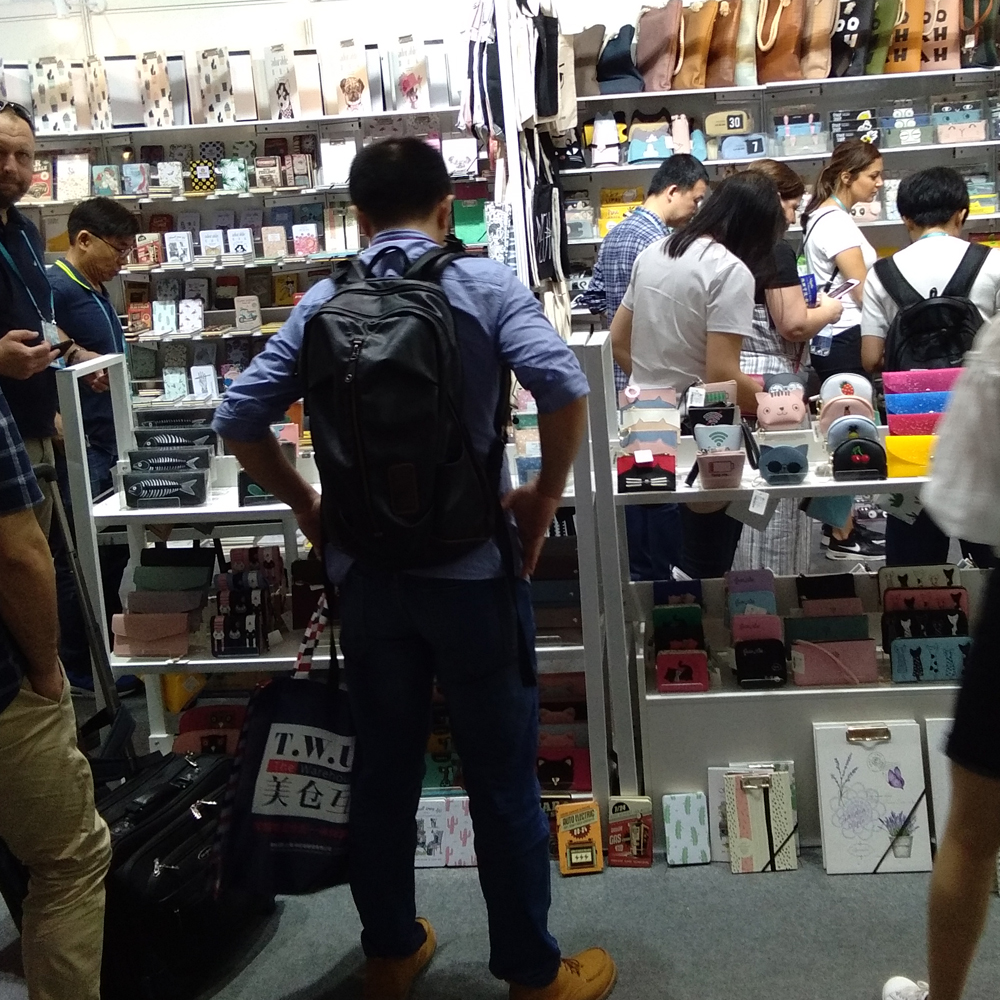Our PU cosmetic bags are designed and developed by ourselves. We can design the appearance, material and function of the products according to customers' requirements.
Jilin Y.F. Imp & Exp Co., Ltd is an exporter and manufacturer (Cang nan Y.F. Stationery & Gift Co., Ltd.)in Creative products, such as Backpack ,Shoulder Bag, Pencil Case , Handbag,Multifunctional Bag. Coin Purse .Cosmetic Bag.Storage bags. File Holder.Canvas handbag and Notebook etc. which is a professional stationery company setting research and development, producing, sales and trade into one. Our company always takes quality, service, efficiency and innovation as our management philosophy. Since our brand Y.F. has been put on the market, the products sell well throughout the country consistently, and be exported to Europe and America,, and South America countries as well as regions, where the product enjoys great customer loyalty and good population. Choose Y.F. is not to choose a batch of stationery, but to choose a commitment and responsibility, Thanks for your attention, support, trust an cooperation. Wish to establish long-term business relationship with you in the near future.
The "School Education Act" issued by Japan stipulates that textbooks used in schools must be approved in advance by the Ministry of Education (now the Ministry of Education, Culture, Sports, Science and Technology). Publishers who intend to publish textbooks shall, in accordance with the Examination Standards for Teaching Books Less Developed by the Ministry of Education, and the “Learning Guidelines for Each Sectionâ€, recruit scholars and educators of relevant disciplines to prepare them. After final editing, they apply for approval by the Ministry of Education, Culture, Sports, Science and Technology. . The province is audited every four years. In 2000, there were more than 60 publishing houses that were approved to publish high school, junior high school, and elementary school textbooks. Various types of books have been published, and the most famous ones are: Tokyo Books, Japanese and Erasmus, Daejeon Books, Kwangchon Books, Imperial Academy, Kailin Hall, and Kailong Hall.
The Ministry of Education, Culture, Sports, Science and Technology has a textbook review council that is equipped with investigators who are specifically responsible for reviewing textbooks according to different stages of education and different disciplines in primary, junior high, high school and university. Investigators form written texts of the results of the review of textbooks and scrutinize the textbooks. The review meeting will be based on the “Learning Guidance Essentials†and other documents for each section of the different education stages. After discussion and voting, the review will be conducted and the qualifications will be rejected. If there is a need for revision, the publishing house may organize the author to apply for revision and reapply for review. The review committee will eventually pass the examination as qualified or unqualified.
The junior high school history textbooks started in 2002, which were sponsored by Japan’s right-wing scholars’ group “New History Textbook Compilation Conferenceâ€, under the pressure of public opinion in Japan and abroad, were reviewed in April last year as “required for revision†and required the compilation of the book. There will be amendments to the 137 clearly distorted historical and beautifying aggressions in the manuscript. However, on April 3 this year, the Ministry of Education, Culture, Sports, Science and Technology formally reviewed the "qualified" textbook, and only made some changes in the "required for revision" office. It did not change the substance of the book distorting historical facts and beautifying the war of aggression. It can be seen that the Japanese government has taken a laissez-faire attitude and indulging in the approval of this textbook.
The Japanese government implements a free supply system for elementary and junior high school textbooks. All primary and junior high school textbooks (each of which has several editions) that have been approved by the Ministry of Education, Culture, Sports, Science and Technology, are counted by the prefectural education committees and reported to the Ministry of Education, Culture, Sports, Science and Technology, and the province orders the relevant publishers. . The province determined the order price ceiling based on the actual costs of several major publishing books plus a reasonable profit. A part of the prepaid book payment is issued for the circulation of the publisher, and the payment is paid twice to the publisher after the book is issued. Before the school starts, textbooks are distributed to each school through a specific distribution channel and distributed to students by the school free of charge. High school textbooks are reviewed and approved by the Ministry of Education, Culture, Sports, Science and Technology, and the maximum price is stipulated by students at their own expense.
The Japanese education community has adopted a variety of versions of primary and secondary school textbooks. The textbooks used in public schools are the administrative agencies responsible for the school
(Education Committee of all levels of government) selected. The textbooks used by private schools are selected by the principal of the school. The afternoon of the same day that the history textbooks for beautifying aggression were approved by Japan’s Ministry of Education, Culture, Sports, Science and Technology (MEXT), 11 Japanese private groups issued a statement to protest and called on the Japanese education community and people not to use this textbook.
In order to facilitate the education community to understand various versions of textbooks, Japan organizes textbook exhibitions in June and July each year so that textbook versions can be selected, counted, and reported to selected districts. On average, there are about 10 selected areas in each county. Each selected area summarizes the required book varieties, versions, and subscriptions for the selected units, and reports to the online education administrative agencies—Du, Dao. The education committees of the prefectures and counties and the above-mentioned education committees are reviewed and summarized and transferred to the Ministry of Education, Culture, Sports, Science and Technology.
There are about 6 textbook distribution agencies in Japan. According to the regulations of the Ministry of Education, Culture, Sports, Science and Technology, distributors issue textbooks. They connect publishers that publish textbooks, and they connect with nearly 4,000 textbook publishers across the country. The general agent company took a variety of textbooks from the printing house designated by the publishing house, distributed it to the agency bookstore, and distributed the textbooks to each school. Distributor agencies and agent bookstores receive a certain fee according to the issuance share. This fee is included in the book price. The ministries, roads, governments, and county education committees all have special supply offices for textbooks. Their tasks are: 1. Selected bookstores in their jurisdiction; 2 Investigate and supervise the distribution of textbooks in these bookstores; Book titles for recycling high school textbooks.
The paper specifications for Japanese primary and secondary school textbooks are unified across the country, and there are uniform regulations for the paper colors. Primary school textbooks for grades 1 to 3 are white, grades 3 to 6 are light yellow, and junior high and high school are light blue. The Ministry of Education, Culture, Sports, Science and Technology grants a subsidy to the textbook's textbook paper. 


Pu Cosmetic Bag,Large Makeup Bag,Makeup Kit Bag,Quick Makeup Bag
Jilin Y.F. Import & Export Co.,Ltd , https://www.jilinyf.com